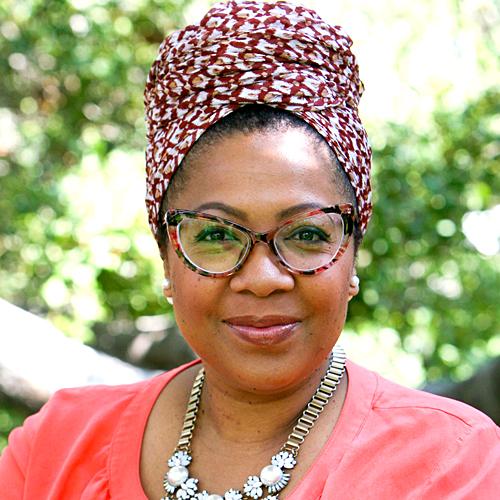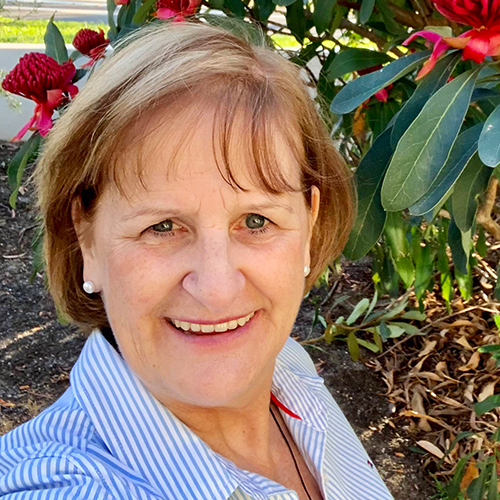 Maternal Anatomy & Physiology Online Course(s) & Continuing Education
Maternal Anatomy & Physiology Online Course(s) & Continuing Education
Access the latest clinical skills and research for Maternal Anatomy & Physiology for Lactation & Breastfeeding professional training. These Maternal Anatomy & Physiology online courses provide practice-changing skills and valuable perspectives from leading global experts. This Maternal Anatomy & Physiology education has been accredited for a variety of CEUs / CERPs and can be accessed on-demand, at your own pace.
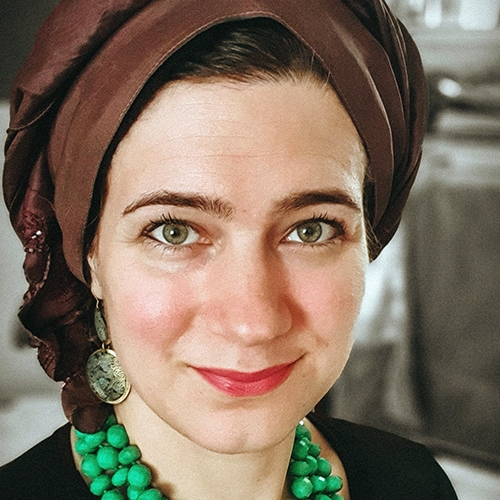
"Help! Breastfeeding Makes Me Feel Bad, Sad or Mad": Helping Breastfeeding Mothers Struggling With Negative Emotions

Zainab Yate is a Biomedical Ethicist, with a specialist interest in infant feeding. Zainab is Vice Chair and named qualitative lead on a paediatric flagged Research Ethics Committee Panel for the Health Research Authority (HRA) in the UK, reviewing research protocols for over a decade. Zainab's previous working background is in Public Health and Commissioning the National Health Service (NHS) in the UK. She had also been a volunteer breastfeeding peer supporter with the NHS for a number of years, is the owner-author of the resource site for mothers and healthcare practitioners on Breastfeeding / Nursing Aversion and Agitation and author of "When Breastfeeding Sucks".
Topic: Breastfeeding / Nursing Aversion and Agitation (BAA) in breastfeeding mothers - [View Abstract]
Topic: Navigating the Future: Bioethical Challenges in Anticipated Integration of AI in Lactation and Breastfeeding Services - [View Abstract]
Topic: Research Ethics & Infant Feeding: How to Utilise the Four 'D's of a Brief Assessment - [View Abstract]
Breastfeeding can trigger particular negative emotions and intrusive thoughts, these can include experiencing the phenomenon of breastfeeding/nursing aversion and agitation, or having the medical condition of Dysphoric Milk Ejection Reflex. Mothers. These don't preclude having postnatal depression or postnatal mood disorders.
Understanding the nuances and variations in all these conditions and symptoms can lead to better referral, intervention and treatment for those struggling with negative emotions associated with breastfeeding. Being prescribed antidepressants when you have D-MER or Aversion will not always alleviate the symptoms or help the situation.
We cover the literature about when breastfeeding can make someone feel bad, sad or mad, and what we know can help alleviate these negative emotions so as a lactation specialist or health care professional you will become well adept at assessing, referring, signposting, supporting and treating those who struggle. The information and skills you will gain will particularly help in complex cases or cases where there seems to be a missing link.
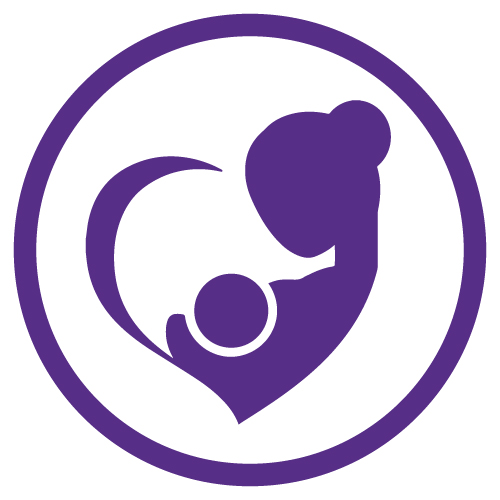
View Details / Enroll


Shondra Mattos is an IBCLC (Internationally Board-certified Lactation Consultant) and owner of a Location-independent lactation practice where she provides breastfeeding and infant feeding support to families countrywide.
Shondra finds the science of lactation fascinating, and as such, she has a passion for sharing her understanding of complex lactation subjects with her colleagues and aspiring lactation students. When she's not with clients, speaking, or teaching, she spends time with her husband and daughter in Fayetteville, NC.
Bryna is a lactation consultant, mentor, educator, and birth doula in the Pacific Northwestern United States. They are active in their community as an advocate for mutual aid, reproductive justice, and reduction in barriers to care. They also own and manage an inclusive private practice. As a member of both Queer and Neurodivergent communities, offering inclusive care on every level is very important to Bryna. Their vision is to offer information and tools to providers to build a community of comprehensive, concordant, and individualized care for all families in the perinatal period.
We propose a talk that outlines the anatomy and physiology of normal infant feeding. Our talk will cover the basic functions of infant muscle groups recruited for latching, sucking, swallowing, and drinking human or artificial milk. We believe that if lactation professionals understand normal physiology as it pertains to muscle groups, they will better be able to educate and help the families our profession serves. At the end of this talk, the lactation professional will be able to establish a baseline for normal muscle function when evaluating the breastfed infant. We will use multiple learning modalities to outline and explain the essentials of muscle function in the breastfed infant.
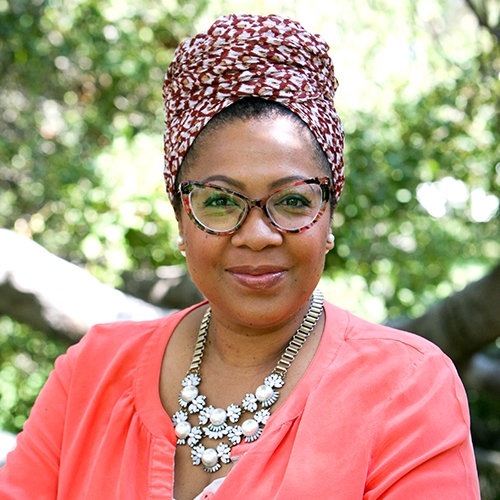

Nekisha Killings is an equity strategist, internationally board-certified lactation consultant, and maternal and child health advocate who speaks, teaches, and facilitates on topics related to equity and dismantling bias across various sectors.
When she is not home educating 4 future world changers, she acts as a Director of Equity, Inclusion and Belonging at Lactation Education Resources and consults organizations on creating and implementing strategies to better support marginalized communities.
Nekisha holds a Masters in Public Health and penned the chapter titled Cultural Humility in the latest Core Curriculum for Interdisciplinary Lactation Support text. Nekisha is on a mission to normalize brown breasts and nipples in health education, thereby better equipping healthcare providers to accurately assess and treat people of color.
Nekisha's work is rooted in a compassion and candor that could only have been cultivated in years of supporting new parents during their first days of parenthood. Nekisha is an active duty military spouse who has been awarded the Spouse of the Year designation for her volunteer efforts supporting families.
Topic: Breast Assessment and Non-White Skin Tones - [View Abstract]
Topic: BreastSide Manner: A Patient-Centered Approach to Lactation Support - [View Abstract]
Topic: Marching Orders: Developing Practical and Impactful Care Plans - [View Abstract]
Is a red spot always a key indicator of mastitis? What about the deep purple trademark of vasospasm? How does eczema present on non-white skin? Performing a standard breast assessment may cause clinicians to overlook or misidentify key indicators of maladies in patients that are not fair skinned. Learn how you can improve your assessments and familiarize yourself with other ways to identify common conditions in patients populations that may not have been featured in your textbooks.

Chasing the Butterfly: Understanding How the Thyroid Gland Impacts Breastfeeding

Alex has been a lactation consultant in the Washington, DC area since 2010. In addition to running her private practice, Bethesda-Chevy Chase Lactation Consultants, Alex cares for breastfeeding moms and babies at Hirsch Pediatrics in Rockville, MD. After earning her master's in English Literature and teaching for several years, Alex met two extraordinary people that inspired her to enter the field of lactation: her daughters. Alex has worked at Inova Fairfax Hospital and Sibley Memorial Hospital as an in-patient lactation consultant. In 2015, she graduated summa cum laude from the University of Maryland Baltimore School of Nursing with a Bachelors of Science in Nursing. Alex is committed to increasing awareness for impaired mammary organ development (IMOD) and impaired mammary organ function (IMOF).
Often overlooked and as elusive as the butterfly it resembles, the thyroid gland may lurk behind a number of breastfeeding difficulties, including low-supply, over-supply, and overt lactation failure. Recent research has revealed that thyroid disorders during pregnancy and postpartum are more common than previously thought. A substantial amount of our current professional discourse centers around tongue-tie, which occurs in anywhere from 4.2%-10.7% of babies, while thyroid disorders in lactating women may in fact be more prevalent than tongue tie, affecting anywhere from 6.7%-13.3% of women in the postpartum period. Even more alarming is that as many 50-80% of these cases may be missed by a woman’s healthcare provider. During this presentation, you will gain a basic understanding of how the thyroid gland functions and the various ways in which a dysfunctional thyroid can adversely affect lactation. You will also learn which signs and symptoms warrant a referral to a primary health care provider. We will review the latest evidence-based thyroid hormone reference values appropriate for a woman during pregnancy and postpartum so that, if your patient does undergo testing, you will feel confident discussing those results with her. Finally, we will discuss some herbal and dietary recommendations for improving thyroid function.

View Details / Enroll

View Details / Enroll
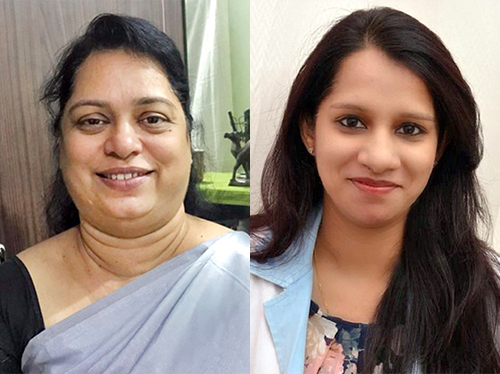

Ruth Patterson is Cloud Nine's P I O N E E R & Most Sought Lactation Specialist with 33 years of rich experience - currently practicing at Jayanagar C9, Bangalore-India and a visiting Lactation Consultant with 9 other Cloud Nine branches locally. She also heads the 24 Pan India Cloud Nine Hospitals as the Manager Lactation.
Ruth's 30+ years of rich experience includes maternity, allied health and nursing care, both in rural and urban sector in India & Abroad. Her exclusive 18 years of experience in Lactation services, she has acquired immense practical knowledge in the last decade to identify most critical disorders of mother and babies during breastfeeding stage. She is acclaimed to have expertise in a lesser-known art of re-lactation and induced lactation.
Ruth is known for her ability to identify the most critical issues in Breastfeeding and restore/re-initiate feeds. She is acclaimed for the use of Dynamic Taping (only available at Jayanagar C9) that arrests/prevents breast surgery/abscess. This Dynamic Taping practice, alongside, a Gynecologist, Pediatrician and Physiotherapist at Cloud Nine, is patented.
Ruth is a well sought out person for patient hearing and provides her expert comments in News columns/Media and also delivers guest lectures.
Dr. Shazia Shadab (PT) is the HOD of the Cloud nine physiotherapist department (PAN-India). She has 10 years experience and has been exceptional in her career with constant learning of new skills and improvising in her services.
She has multiple articles published in acclaimed newspapers
and many international certifications affiliated with her name like
pelvic girdle dysfunction, labor mechanism, and has done basic advanced certification in dynamic tapping to name a few. She also has pursued her post-graduation in research methodology after her bachelor's in physiotherapy.
She has always been keen to learn how to progress in a variety of different treatment approaches to find better results. This has helped her and her team to develop an intervention to prevent breast abscess with no surgical approach and has been granted a patent on "a device to promote feeding and scar-free treatment of breast abscess treatment during lactation".
She has worked along with professionals like Dr. Kishore Kumar, Dr. Prakash Kini, and Ruth Patterson, and has treated more than 100 patients suffering from breast abscesses without any surgical intervention. This would be an exceptional resource to help and provide better care.
She has extensive expertise in not only treating but also preventing multiple
musculoskeletal conditions during pregnancy and postpartum. She has been awarded the ABCD (Above and Beyond the Call on Duty) Award for her unwavering and selfless dedication to her patients.
"Lactational breast abscess is a common problem during breastfeeding. Surgical treatment of breast abscess involves maternal child separation and discontinuation of breast feeding. Surgical intervention with its inherent anxiety and probable unwanted side effects can deprive the lactating parent and baby of innumerable benefits. Non-surgical therapeutic modalities can potentially circumvent these problems. Dynamic taping with the help of a physiotherapist is a potential non-surgical intervention. This presentation presents the results of an observational, cohort study which was conducted in 20 consenting mothers with breast abscess attending an out-patient services tertiary maternal and neonatal unit. The mothers were administered two layers of dynamic tape as a single long segment on the breast avoiding the areola in an outward radiating direction to optimize lymphatic flow. Treatment was considered successful if there was resolution of the breast abscess with or without natural oozing."
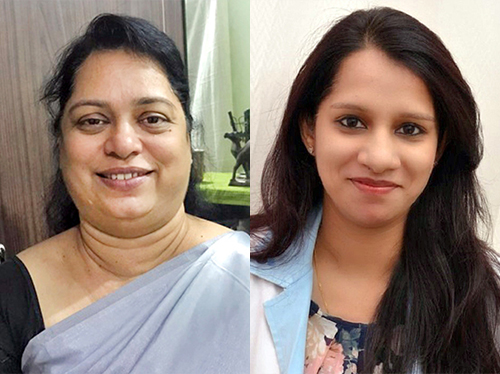
View Details / Enroll

More Than Just the Milk-Making Hormone! The Latest on Prolactin and Its Impact on Pregnancy and Lactation

Dave Grattan is a professor in the Department of Anatomy at the University of Otago, School of Biomedical Sciences. He has published over 180 research articles in the field of Neuroendocrinology, particularly focused on the hormone prolactin. He has also presented over 30 invited lectures at international meetings, and won a number of prizes, including the Triennial Medal of the Physiological Society of New Zealand (2005), the Mortyn Jones Medal of the British Society for Neuroendocrinology (2009) and HNNA Lecturer for the International Congress of Neuroendocrinology (2022). He was Head of the Department of Anatomy from 2011-2014, and Director of the Centre for Neuroendocrinology at the University of Otago from 2018-2023. He has served as the President for the New Zealand Society of Endocrinology (2003-2006) and for Hypothalamic Neuroscience and Neuroendocrinology Australasia (HNNA, 2017-2020). From 2009-2014 he was the Editor-in-Chief of the Journal of Neuroendocrinology, and is currently an Associate Editor at Endocrinology. He chaired the organising committee for the 8th International Congress of Neuroendocrinology in Sydney, Australia, 2014, and from 2018-2022 chaired the FASEB Science Research Conference on Growth hormone/prolactin family in health and disease.
Many changes take place during pregnancy to prepare for the physical and physiological challenges of becoming a mother, including numerous adaptations in the maternal brain. Dynamic fluctuations in key hormones during pregnancy induce these adaptive changes to enable the mother’s physiology to adjust to the new demands of these reproductive states and to provide the optimal environment for the development of her baby. Evidence shows that the “lactogenic hormones” (i.e. the multiple pituitary and placental hormones that act through the prolactin receptor) are critical for many of the adaptive changes that occur during pregnancy. It is well accepted that prolactin is required for lactation, but it is now clear that these hormones have a much wider role, influencing maternal behaviour and the maintenance of lactation infertility. Surprisingly, we have shown that prolactin action in the brain also mediates metabolic changes, including stimulation of food intake, a profound suppression in voluntary physical activity in pregnancy, and there is exciting new data showing a role for prolactin in thermoregulation. Collectively, we believe these observations are consistent with the hypothesis that prolactin (and its placental homologue placental lactogen) plays a key role in coordinating the behavioural and physiological adaptations to pregnancy in the mother, and lactation could be considered simply another in this suite of prolactin-mediated physiological adaptations. These data highlight a much more comprehensive role for prolactin in the process of mammalian reproduction than is typically considered for this “lactation hormone”.

View Details / Enroll

Peer Counselors In The Hospital; Taking Your Peer Counselor Program To The Next Level

Lisa Huffstetler is the mother of six children with years of personal breastfeeding experience. She has been an International Board Certified Lactation Consultant since 2011. Lisa began working with breastfeeding families as a Peer Counselor in 2008 as part of the Gaston County, North Carolina WIC's implementation of their Peer Counselor Program. She is passionate about helping new moms become successful in reaching their breastfeeding goals. Lisa is currently working as the Gaston County WIC agency's Lactation Consultant. She enjoys teaching breastfeeding classes, conducting staff trainings and working to keep staff updated on breastfeeding policy.
As a new grandmother, one of her new found interests is helping grandparents support their children appropriately in their new role as parents, especially in effective support of breastfeeding.
Hospital visits from a Peer Counselor just after delivery can have a tremendous impact on breastfeeding for mom and baby. Evidence-based research shows that Peer Counselors can share an important role in the success of breastfeeding for families. Peer Counselors making an early connection and reminding families that there is someone here to help them with their breastfeeding journey, now and after mom and baby discharge from the hospital, can be very comforting for those nervous new parents. Often, a short visit from a Peer Counselor to reassure a new mother that she is right on track with breastfeeding is just what mom needs to encourage her for the learning period she is going through. Learn about the success stories of a Peer Counselor Program from the implementation of hospital visitation through years of success in hospital visits and the difference it has made in their Peer Counselor Program participation and breastfeeding numbers.
There are challenges to getting Peer Counselor hospital visits started. It may not be as easy to get your foot in the door as you would think. We will discuss some of the red tape situations you may encounter as you start trying to set up hospital visits. Adding hospital visits to your Peer Counselor activities can have a positive impact on your Peer Counselor Program and increase breastfeeding rates for your area.

View Details / Enroll

View Details / Enroll
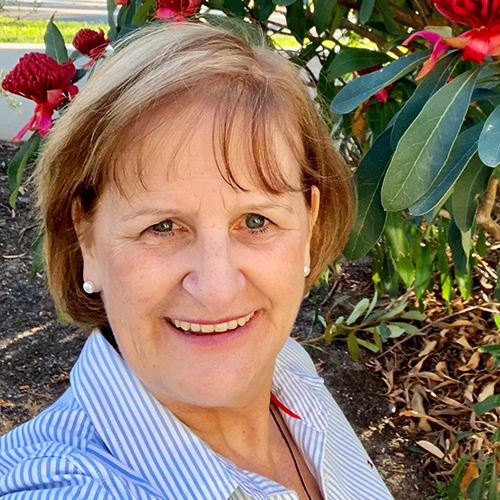

Decalie is a Registered nurse/midwife with over 40 years of experience collectively working as an IBCLC in a clinical roles within Primary Care and Community Health. Currently working as a Child & Family Health Clinical Nurse Specialist 2 in busy Community of the Blue Mountains, NSW Australia. She supports health professionals and parents with education of lactation/infant feeding/settling and behavioural issues for infants and children 0 to 5 years of age as a clinical specialist. A current BFHI Assessor. Has shared her extensive clinical experience in workshops at many ILCA, LCANZ and ABA conferences over the years. Her passion in support for mothers and babies.
Decalie has volunteered for Board of Director for the Australian Lactation Consultants Association (ALCA) 7 years on the ILCA International Lactation Consultant Association, last 2 years as President. On the Inaugural World Trends Initiative WBTI AUS Core group. Advisory committee for International Childbirth Education Ass. ICEA. World Health Organisation working group for revision of BFHI Education package, WABA advisory group. ILCA Nominations committee chair, IBCLC Care award Co chair.
Enjoying the next level of parenting being Mimi to her 3 year old grandson Cole.
The breastfeeding journey for a woman and her baby is very special. Mothers who may be larger-breasted and lactating often have special breastfeeding needs and issues. This online session empowers clinicians with supportive tools to help these women successfully breastfeed. This session will enable clinicians to utilize simple, practical techniques, tips, explore the challenges of larger breasts during lactation. Attendees will develop their advanced breastfeeding counseling skills to manage individual situations and provide the unique support necessary. The research shows that if mothers with above average weight are provided with the appropriate breastfeeding management and support early, their breastfeeding experience will be enhanced and sustained. This sensitive session is designed to aid clinicians in developing their own practical breastfeeding support kit, as well as honing specific skills for a positive outcome when supporting larger breasted women to breastfeed their babies.


Wendy is a breast biologist at the University of Adelaide, Australia. Her research explores the biology of how the breast develops and functions to better understand how disease states occur, including lactation mastitis and breast cancer.
After postdoctoral research as an NHMRC CJ Martin Fellow at Albert Einstein College of Medicine in New York, USA, Wendy returned to Adelaide in 2005 and established the Breast Biology and Cancer Unit at the University of Adelaide. In 2011 she was appointed a National Breast Cancer Foundation Fellow and also The Hospital Research Foundation Associate Professor of Breast Cancer Research, which is her current appointment.
In 2016 Wendy won the Award for Excellence in Reproductive Biology Research from the Society for Reproductive Biology. Wendy’s research challenges old paradigms and explores new concepts in how the breast develops and functions to improve breast health across the life course.
The mammary gland is a unique tissue, common to all mammals, that undergoes the majority of development postnatally, particularly during puberty and pregnancy. During pregnancy, the mammary gland acquires the ability to make and secrete copious amounts of milk to provide essential nutrients and immunological protection to the newborn. The biological mechanisms that lead to milk synthesis and secretion are finely orchestrated as the composition, abundance and timing must meet the unique and specific needs of each mother-baby pair during this critical phase of infant development. This lecture will encompass the developmental mechanisms that enable the mammary gland to undergo lactation, the composition and secretion of breast milk, and a comparative analysis of the mammary gland between human and other mammalian species to better appreciate the remarkable functions of this unique tissue.


Lisa Marasco has been working with breastfeeding mothers for 35 years and has been Internationally Board Certified since 1993. She holds a Master’s degree in Human Development with specialization in Lactation Consulting and was designated a Fellow of ILCA in 2009.
Lisa is co-author of Making More Milk: The Breastfeeding Guide to Increasing Your Milk Production, a contributing author to the Core Curriculum for Interdisciplinary Lactation Care, and a Cochrane Collaborative author. She is employed by WIC of Santa Barbara County while she continues to research, write and speak. In addition, Lisa is affiliated with La Leche League of So. Calif/Nevada, and serves on the Breastfeeding Coalition of Santa Barbara County.
Topic: Deciphering the Lactation Curve - [View Abstract]
Topic: Developing An Action Plan for Mammary Hypoplasia: Improving our Understanding to Optimize Care - [View Abstract]
Topic: Getting a Better Grip on Prolactin - [View Abstract]
Topic: Recognizing When Things Are Heading South - [View Abstract]
Topic: The Mysterious Milk Ejection Reflex - [View Abstract]
Milk removal drives milk production and feeds the baby. The ability of a baby or pump to remove milk from the breast depends strongly on the milk ejection/letdown reflex. While normally robust, a number of factors can influence this reflex, some more obvious than others. When milk flow suddenly becomes an issue, the rush is on to determine why and what to do about it. This session will take a deeper look at how this reflex works, factors that can affect it positively or negatively, and potential strategies to help.






